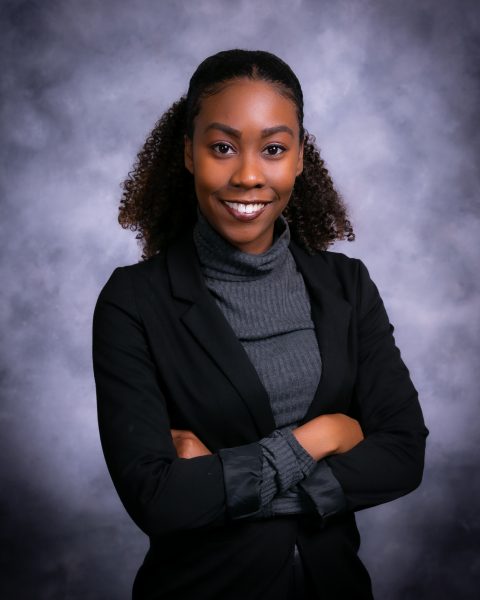Kamesha Laurry is a legal fellow at the Reporters Committee for Freedom of the Press, a nonprofit legal services organization located in Washington, D.C. Before joining the Reporters Committee, she worked as a student attorney at the Wrongful Convictions of Youth Clinic and the Civil Rights Litigation Clinic. Kamesha also previously worked as a certified mediator, assisting parties in negotiating settlements to legal disputes.
Where is your work featured/what organizations are you affiliated with?
I am the first Borealis Racial Equity in Journalism Fund Legal Fellow at the Reporters Committee for Freedom of the Press — a nonprofit organization that provides free legal representation and other legal resources to protect First Amendment freedoms and the newsgathering rights of journalists. My fellowship is designed to support historically underserved journalists and communities by connecting journalists to the Reporters Committee’s legal resources.
Where did you go to school?
I am proud to say that I attended the illustrious Oakwood University, an HBCU located in Huntsville, Alabama. I graduated magna cum laude from Oakwood University in 2016 with a bachelor’s degree in Pre-law with a concentration in political science.
After graduation, I received my J.D. from Northwestern Pritzker School of Law, where I was an editor for the Northwestern Journal of Law and Social Policy.
How many years have you been in journalism/related fields?
My interest in journalism started in law school when I enrolled in Northwestern’s Entertainment Law class three years ago.
What are you doing now? (i.e. any projects you’re working on; partnerships; advancements; or noteworthy stories)
My job is to identify and support journalists of color and news media outlets led by people of color. Therefore, a bulk of my fellowship involves reaching out to and partnering with various organizations to make sure journalists of color are receiving necessary representation and resources.
So far, I have successfully hosted a wide variety of journalism legal trainings and webinars, provided pre-publication review to a number of journalists and documentary filmmakers, crafted demand letters for access to governor press briefings, created citizen journalism guides for respective media outlets, wrote amicus briefs and so much more.
What pushes you to keep doing the work?
It’s surprising to learn that many journalists don’t know that they are in need of legal assistance. And even when they are aware, they often don’t know who to turn to for support.
We have received a tremendous amount of positive feedback from BIPOC journalists and newsrooms. This is encouraging because it shows that BIPOC journalists and news organizations are receptive to receiving assistance from the Reporters Committee and other organizations who are dedicated to protecting the First Amendment freedoms and the newsgathering rights of BIPOC journalists. And as long as they are seeking the Reporters Committee’s help, we’ll be here to support them.

